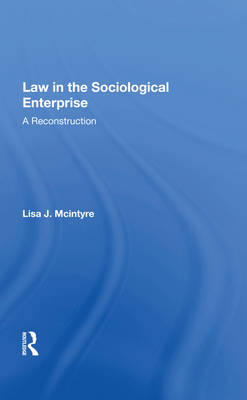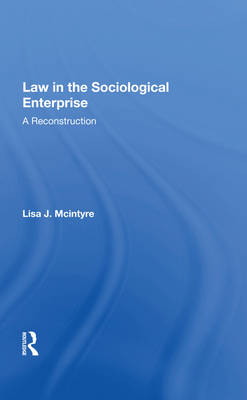
- Afhalen na 1 uur in een winkel met voorraad
- Gratis thuislevering in België vanaf € 30
- Ruim aanbod met 7 miljoen producten
- Afhalen na 1 uur in een winkel met voorraad
- Gratis thuislevering in België vanaf € 30
- Ruim aanbod met 7 miljoen producten
Zoeken
€ 195,95
+ 391 punten
Uitvoering
Omschrijving
Few would dispute the notion that law has a tremendous impact on modern life. But social scientists who study the dynamics of family, work, and other important social institutions often ignore the pervasive influence of law. This introduction to the legal world and the sociology of law shows how social scientists can better account for the influences of legal issues in a wide range of social settings. Incorporating historical and cross-cultural research into her book, Lisa J. McIntyre explains the general effects of law on interpersonal relations, the concept of the civil contract, and the relationship between law and social norms. She discusses why some societies and domains within societies have more law than others and shows that, contrary to popular wisdom, law is not only a reflection of social values but also fundamental to the formation of those values.
Specificaties
Betrokkenen
- Auteur(s):
- Uitgeverij:
Inhoud
- Aantal bladzijden:
- 254
- Taal:
- Engels
Eigenschappen
- Productcode (EAN):
- 9780367009458
- Verschijningsdatum:
- 7/06/2019
- Uitvoering:
- Hardcover
- Formaat:
- Genaaid
- Afmetingen:
- 146 mm x 229 mm
- Gewicht:
- 630 g

Alleen bij Standaard Boekhandel
+ 391 punten op je klantenkaart van Standaard Boekhandel
Beoordelingen
We publiceren alleen reviews die voldoen aan de voorwaarden voor reviews. Bekijk onze voorwaarden voor reviews.











